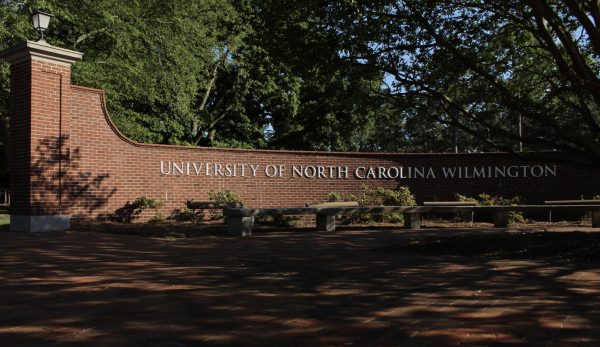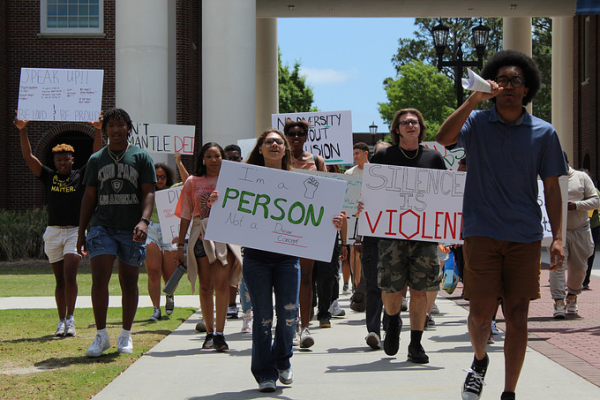McCrory creates commotion for NC liberal arts
February 8, 2013
Recently elected Gov. Pat McCrory’s attempts to cut funding for liberal arts education continues to ignite fierce conversations about the North Carolina education system, with no signs of extinguishing.
Students and faculty at UNC Wilmington have joined the conversation, voicing their opinions on McCroy’s attacks on liberal arts.
“The value of a liberal arts education to our students and communities is incalculable,” said Dr. Tiffany Gilbert, professor of English at UNCW. “The liberal arts provide students with a unique set of skills to become engaged citizens as well as qualified job-seekers.”
McCrory places more importance on vocational studies and technical training. The governor stated in a radio interview with politician Bill Bennett that he plans on funding colleges “not based upon how many butts in seats but how many of those butts can get jobs.”
“Not everyone is going into business,” said Ian Oglesby, political science major and campus liaison for UNCW’s chapter of College Democrats. “I think it’s important to have a workforce that can think in dynamic ways, people that aren’t simply making motions.”
McCrory writes of two primary functions of education in a recent article for The Star News. First, McCrory states that education should help students develop and practice critical thinking. The second function of education, according to the Governor, is to learn valuable skills, which will enable gradates to get a job. McCroy’s comments on the value of liberal arts education seem to privilege the latter of the two functions, undervaluing the necessity critical thinking skills.
“I want our students prepared for a lifetime of meaningful work, and in my view, to focus on preparation only for a single job is not a long term stretch,” said David P. Cordle, dean of The College of Arts and Sciences at UNCW. “While certainly there’s broad agreement that higher education does need to prepare students to have good jobs, even more than that, we want students to have good lives, and that means more than just work.”
Larry Clark, dean of the Cameron School of Business, a department which falls outside the definition of liberal arts, comments on the value of a broad education: “I can’t conceive of a successful graduate of the business school if they don’t have a liberal arts base to be working with.”
The governor’s stance on liberal arts education, which he calls “the educational elite,” prompted several professors and students in other North Carolina universities to speak out and voice their opinion.
Michele Rivkin-Fish, associate professor of Anthropology at UNC-Chapel Hill, calls McCrory’s proposal, a “socialist notion,” asserting that the Governor’s plan for higher education “closely resembles the worst aspects of centralized Soviet planning,” in a recent article published in The News and Observer (Raleigh).
UNC-Chapel Hill, the nation’s first state university, became one of the targets of McCrory’s dismantling attempts. The governor criticized a handful of academic disciplines, specifically gender studies, which he said he does not plan to subsidize if it will not get someone a job.
Jennifer Job, a Ph.D. candidate at UNC-Chapel Hill, created a petition to stop McCrory’s efforts. The petition has garnered nearly 12,500 signatures and continues to grow. Job said she hopes to “influence schools in the future-in ways such as defeating this measure by Governor McCrory.”
Having studied Political Science and graduating with a teaching licensure from Catawba, a liberal arts college in Salisbury, North Carolina, Governor McCrory’s proposal seems to be a contradicting effort.
The UNCW community, as well as thousands of students and faculty within the entire UNC system, continues to push for educational justice, including a march to the doors of the NC legislature and scheduled call-in days to voice their thoughts directly to Gov. McCrory.














